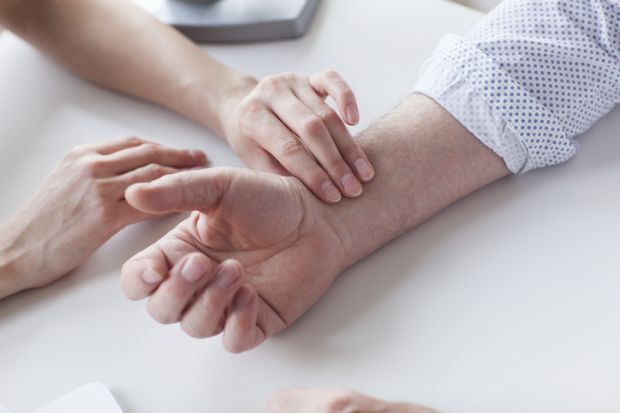Notwithstanding the reaction of students at the University of Manchester to the sight of fences being erected around their halls of residence last week, universities have escaped the worst of England’s second lockdown.
Unlike restaurants, pubs and other “non-essential” businesses, universities have not been required to close during the lockdown, which began last week. Higher education institutions are free to determine how many lectures, classes and other events continue.
However, the fact that the students felt the need to tear down the “prison-like” fences points to the Covid fatigue that is setting in and the threat that it poses to the mental health not only of students but also of university staff. The news about the effectiveness of Pfizer’s vaccine may be good, but there is still no immediate end in sight to social restrictions as the UK – where I studied and worked as an academic for 10 years – heads into winter.
However, without hard data, university leadership cannot know how staff are truly faring. Studies published on the psychological effects of the pandemic on the UK general adult population may not be relevant, given the unique circumstances and challenges that staff working in higher education currently face. As part of their road map to recovery, it is imperative that health and well-being leaders in UK universities proactively check in with staff over the next few weeks to gauge how they are coping.
In this, they may be able to benefit from our experience on the other side of the world at Monash University.
In July, we in Melbourne found ourselves – for the second painful time – at the beginning of one of the world’s harshest lockdowns, which would eventually last more than 100 days. We were living under an 8pm curfew, could only spend one hour outside each day for exercise and had a 5km radius imposed for all non-essential travel.
Knowing that this second dose of restrictions would prove even tougher than the first, our Turner Institute for Brain and Mental Health initiated the Thrive@Home Survey: a unique, in-depth longitudinal study into our staff’s mental and cognitive health, lifestyle behaviours (particularly sleep and exercise) and personal circumstances (such as caring for young children or elderly relatives).
Approximately 2,220 Monash staff completed the survey online over the course of a week in September. Some of the results bore out our fears. Almost 60 per cent of staff showed signs of low vitality, with an alarming 25 per cent reporting scores indicative of clinical depression. Early career researchers and carers were at most risk of depression, which tended to be accompanied by high levels of discomfort with uncertainty and loneliness.
The lesson for English institutions is that they must do all they can to foster community connection. However, our data revealed that staff were most likely to reach out to friends, family, colleagues and other staff members, rather than campus or clinical services. As such, we are building new virtual colleague-to-colleague connection channels and forums aimed particularly at staff caring for children and/or elderly relatives and complete with helpful information, links and resources.
Other survey findings were a surprise. We did not expect staff cognitive health (attention, concentration, memory and reasoning) to be drastically affected by the lockdown given the high productivity evident across the university throughout 2020. Yet almost half of respondents said that their ability to concentrate had significantly declined and their thoughts had become more muddled. A third reported declines in recall ability, although few had sought help for it, perhaps not knowing where to turn.
The lesson is that prioritising cognitive health is as important as mental health in the workplace. With the assistance of cognitive neuroscientists, we are developing accessible, digital cognitive health interventions to help clear “brain fog” in staff when they need it. While there are countless web- and smartphone-based applications designed to tackle mental health challenges, few are aimed at bolstering cognitive fitness through an evidence-based approach.
Thankfully, our predictions of high levels of anxiety and low levels of exercise and sleep regularity were not borne out by our staff survey. Nevertheless, we are still ramping up strategic communications to remind staff about the mental health benefits of good sleep and exercise and to provide tips from implementation science on how to embed them into their lives. Examples include how to navigate one’s relationship with technology and light to maximise sleep quality and how to leverage digital technologies to develop (and stick with) a personalised schedule for sleep and exercise.
Following the success of the Thrive@Home Survey, monitoring the mental and cognitive health profile of our staff will become the norm at Monash. In sparking new prevention and interventions initiatives, the benefits of this process are already obvious. I encourage UK institutions to reap these benefits too.
Kim Cornish is Sir John Monash distinguished professor of psychology at Monash University.
Register to continue
Why register?
- Registration is free and only takes a moment
- Once registered, you can read 3 articles a month
- Sign up for our newsletter
Subscribe
Or subscribe for unlimited access to:
- Unlimited access to news, views, insights & reviews
- Digital editions
- Digital access to THE’s university and college rankings analysis
Already registered or a current subscriber? Login







